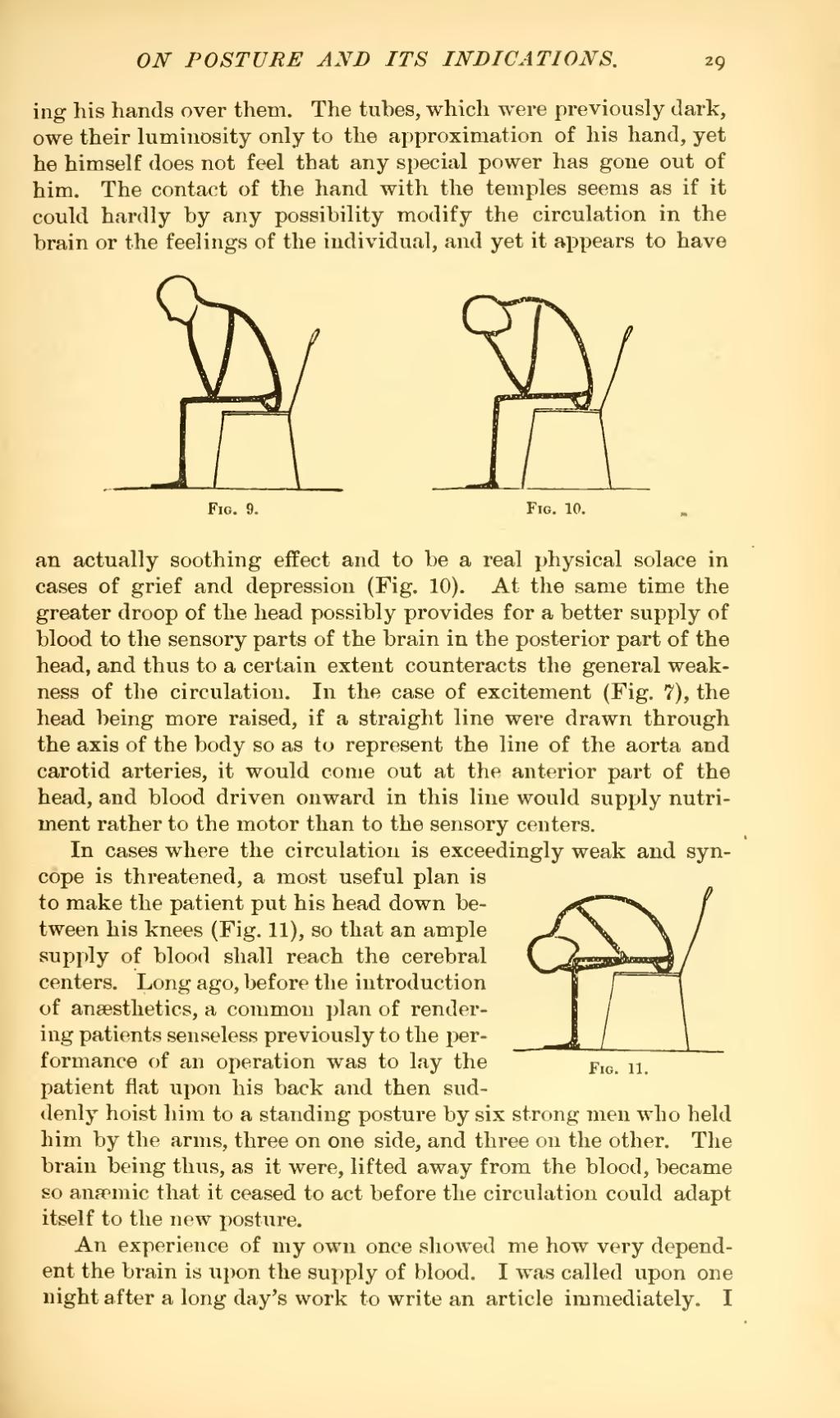ing his hands over them. The tubes, which were previously dark, owe their luminosity only to the approximation of his hand, yet he himself does not feel that any special power has gone out of him. The contact of the hand with the temples seems as if it could hardly by any possibility modify the circulation in the brain or the feelings of the individual, and yet it appears to have
 | ||
| Fig. 9. | Fig. 10. | |
an actually soothing effect and to be a real physical solace in cases of grief and depression (Fig. 10). At the same time the greater droop of the head possibly provides for a better supply of blood to the sensory parts of the brain in the posterior part of the head, and thus to a certain extent counteracts the general weakness of the circulation. In the case of excitement (Fig. 7), the head being more raised, if a straight line were drawn through the axis of the body so as to represent the line of the aorta and carotid arteries, it would come out at the anterior part of the head, and blood driven onward in this line would supply nutriment rather to the motor than to the sensory centers. Fig. 11.In cases where the circulation is exceedingly weak and syncope is threatened, a most useful plan is to make the patient put his head down between his knees (Fig. 11), so that an ample supply of blood shall reach the cerebral centers. Long ago, before the introduction of anæsthetics, a common plan of rendering patients senseless previously to the performance of an operation was to lay the patient flat upon his back and then suddenly hoist him to a standing posture by six strong men who held him by the arms, three on one side, and three on the other. The brain being thus, as it were, lifted away from the blood, became so anæmic that it ceased to act before the circulation could adapt itself to the new posture.
Fig. 11.In cases where the circulation is exceedingly weak and syncope is threatened, a most useful plan is to make the patient put his head down between his knees (Fig. 11), so that an ample supply of blood shall reach the cerebral centers. Long ago, before the introduction of anæsthetics, a common plan of rendering patients senseless previously to the performance of an operation was to lay the patient flat upon his back and then suddenly hoist him to a standing posture by six strong men who held him by the arms, three on one side, and three on the other. The brain being thus, as it were, lifted away from the blood, became so anæmic that it ceased to act before the circulation could adapt itself to the new posture.
An experience of my own once showed me how very dependent the brain is upon the supply of blood. I was called upon one night after a long day's work to write an article immediately. I
